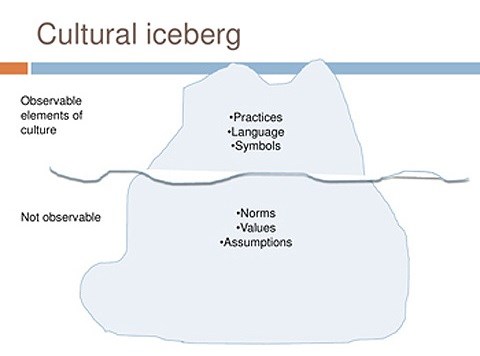Naturally we do the obvious, like finding out about the sector we trade in, the main competitors, pricing, distribution channels etc. But that is not finishing the "homework". What do you know about the culture of the country you hope to do business in? Do you know what is important to your business partners there? Reading Lonely Planet or searching the Internet is not going to cut it. English can be viewed as a global business language, but there is no such thing as a "global culture", and chances are there never will be.
Cultural Quotient (CQ) or Intercultural Intelligence (ICI) is essential when doing business across cultures. It is not just about the "Do's and Don'ts", but rather about learning how to be successful within a foreign culture.
When one fully understands one's own culture and that of the place one wants to do business in, the chances of success increase drastically. Did you know that up to 70% (world average) of international ventures fail, mainly due to a lack of knowledge and skills to conduct business in the host country?
We are unfortunately inclined to group people together as if they were sheep, and stick a label on them. Coca-Cola launched a wonderful campaign in the Middle East with this theme. The challenge with culture is that what we see is only the "tip of the iceberg". The most important cultural elements are below the surface, i.e. the preference for competition and cooperation, the patterns of group decision-making, problem-solving roles, concepts of justice.

Getting to know, and most importantly understand these differences, will assist in better interpreting the spoken word and gestures made in meetings and negotiations. An example: an American, wanting to express to his Asian colleague that they were in agreement, said "Our thinking is definitely in parallel." When met with stony silence, he inquired what the problem was. His colleague replied, "I know that 'parallel' means two lines that never touch, so you must mean that we cannot reach agreement". Culture is the way in which people solve problems, if something works in one culture, there is little chance that it will work in another.
Sure there are plenty of success stories, but there are numerous examples of failure. When General Motors introduced the "Chevy Nova" in South America, the car didn't sell despite all their best efforts. GM finally realised that in Spanish, "nova" means "it won't go". Or in Germany UPS had to change the driver's uniform, no-one had worn a brown shirt since 1945, as it was the colour of the Nazi Youth uniform. Or Heineken's 1994 Soccer World Cup promotion included printing the flags of countries which qualified for the finals on their leading beer brand, including Saudi Arabia. Heineken had to recall all bottles and discontinue the campaign as Muslim customers worldwide reacted angrily to the fact that a holy verse was associated with an alcoholic beverage.
So, without in-depth understanding of the host culture, the chances are that you will make mistakes. It could be small, or it could sink your brand. This spans across all the areas of marketing. It is about what your brand means to people in each culture. So, you would have to adapt your strategy to achieve your goals. Different cultures can have vastly different views of the value and image of products / brands. Key differentiating factors can also differ. We should not assume that Google will provide the answers. You would rather have to spend time on the ground to familiarise yourself with all the facts and nuances. (As suggested in my previous article).
The first step is to contact an Intercultural Consultant, someone who has the knowledge and experience to ensure your "homework" is done. It might not guarantee success, but will increase your chances considerably. SUKAVANA is one who offers such services and for more details on the Intercultural front check out www.sukavana.com.
This is for those going to simply have meetings to negotiate / strike a deal. If it is to start a venture, the next step is to ensure all who will be working on the project, visit the country / culture so that the whole team is on the same page. This should include your Advertising Agency who will be assisting you. Wishing you all the best on your new venture.
BTW: Cultural differences do not only exist with regard to faraway and exotic countries, but on our doorstep. In our globalised economy everyone deals with clients, customer, business partners, legal and administrative people with different cultural backgrounds, and research shows the impact of diversity, trends and forecasts.
So, ICI (Intercultural Intelligence) should be part of our daily life. As Maya Angelou said: "Surviving is important, but thriving is elegant."
Enjoy!
